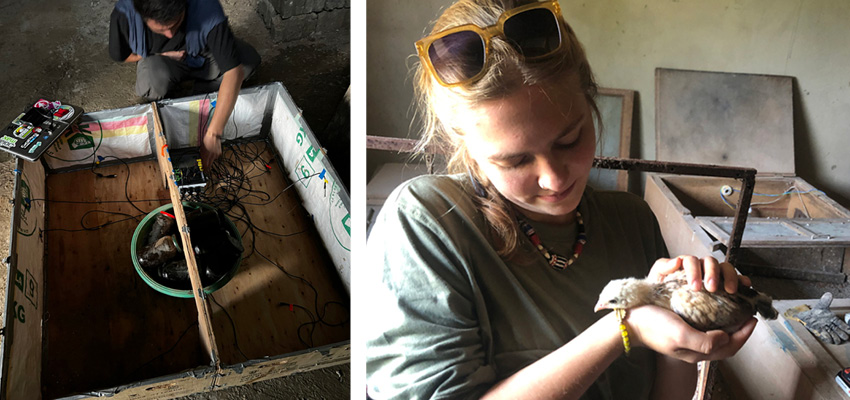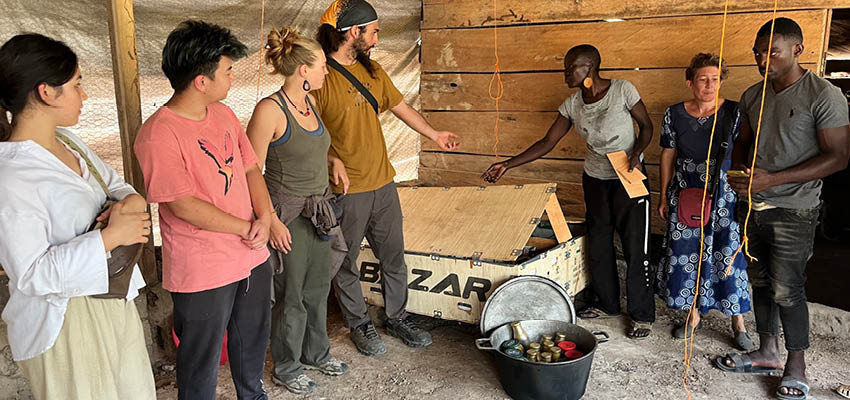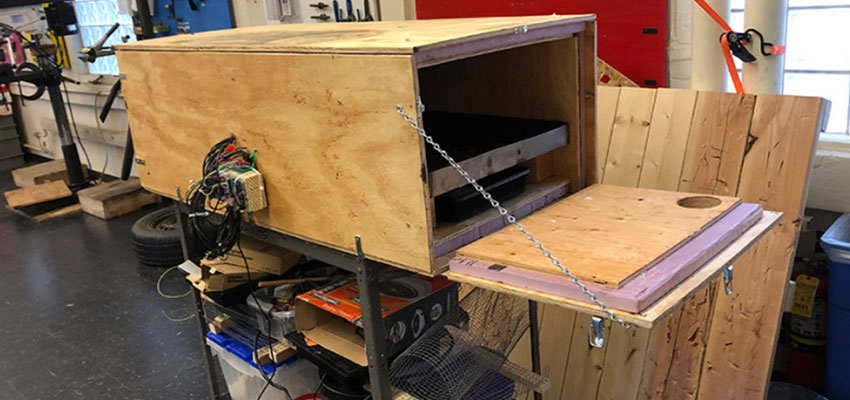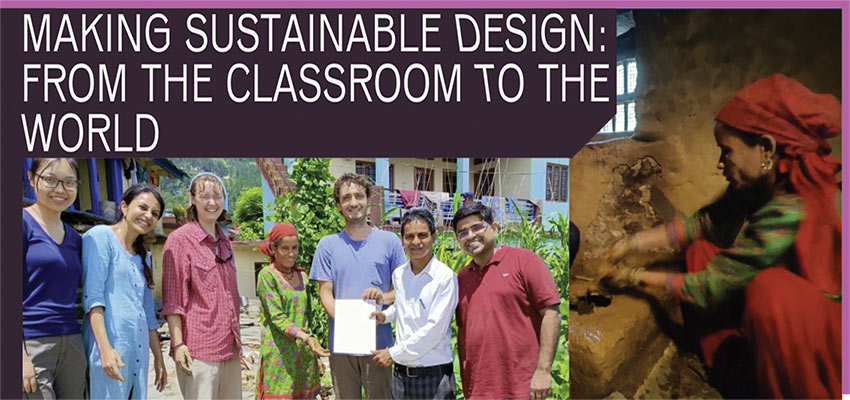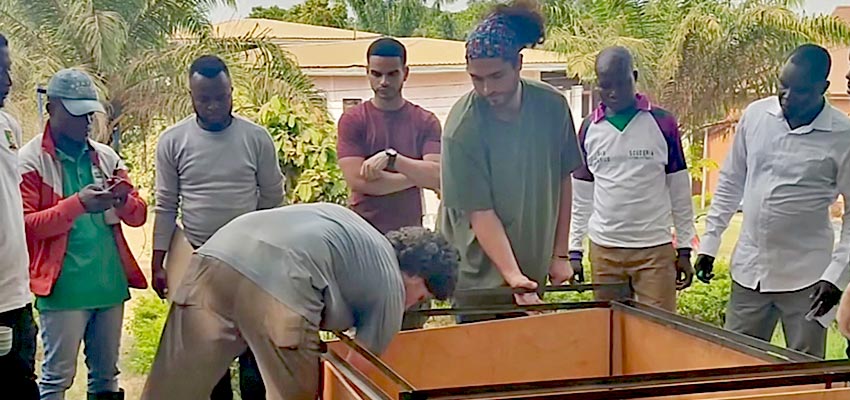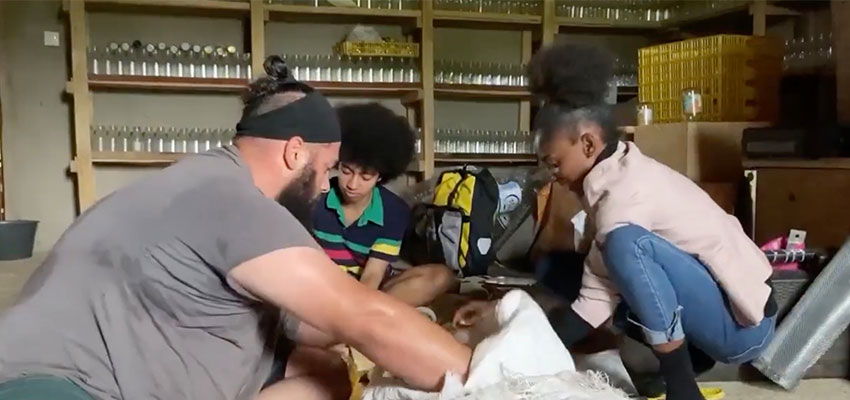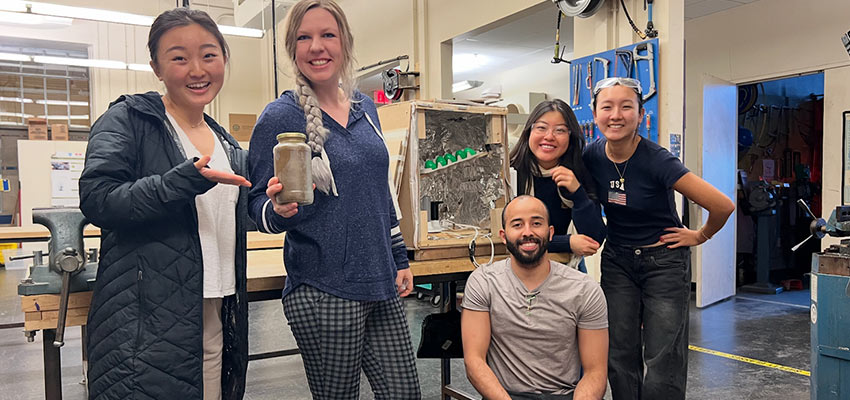
Developing an off-grid egg incubator for farmers in rural Cameroon
MIT D-Lab class
Applications of Energy in Global Development - Fall 2024
Community partners
African Diaspora Council of Switzerland Branch Cameroon (CDAS-BC)
- Kathrin - Founder/President
- Carole - Secretary/Treasurer
- Josue - Local Poultry and Beeswax Farmer
- Lionel - African Solar Generation head of communications
- Jean - Local Poultry Farmer
Country
Cameroon
Student team
MIT students unless otherwise noted.
- Cara Yu, 2025, Harvard. Cara Yu is an undergraduate student at Harvard studying Economics and Environmental Science & Public Policy.
- Aletha Pyeatt, 2025, Advanced Study Program. Aletha is studying design solutions to international development challenges through the advanced study program at MIT.
- Grace Li, 2025, Harvard. Grace is an undergraduate student at Harvard studying Computer Science and Neuroscience, with a concurrent master's in Computer Science.
- Odai Elyas, PhD MIT CEE. Odai is a PhD candidate in Civil and Environmental Engineering at MIT working on applying Large Language Models to improve large-scale operations efficiency.
- Madeline Chang, 2026, Wellesley. Madeline is studying Peace & Justice and Economics focusing on technology for global equity.
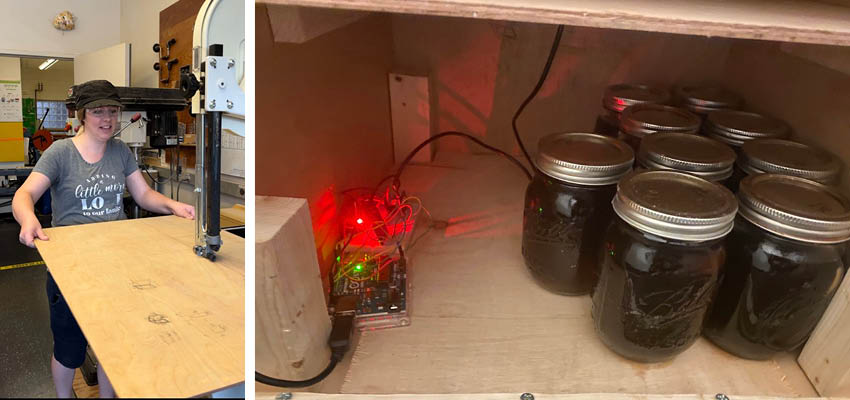
Problem framing
The poultry industry accounts for nearly half of Cameroon’s meat production, yet rural farmers face significant challenges due to a heavy reliance on imported GMO chicks. These chicks are infertile, low-quality, and limit opportunities for farmers to sustainably scale their operations. To address this, there is an opportunity to empower farmers to establish successful poultry farms using high-quality, locally bred chicks capable of reproduction. Rural farmers lack access to off-grid solutions for maintaining the necessary warmth for eggs to hatch, resulting in lower hatch rates and missed economic potential. Additionally, when hens incubate eggs naturally, they cease laying for the three-week incubation period, reducing productivity. Developing an off-grid egg incubation solution could significantly improve hatch rates, allowing farmers a streamlined incubation process, potential to boost income, and enhanced economic mobility. Our off grid incubator solution supports a sustainable shift toward localized, self-reliant poultry farming in Cameroon.
Solution including technical details
Our team designed an egg incubator that can run without reliable access to electricity. It uses a hybrid approach, combining solar-powered heating bulbs with thermal batteries. The thermal batteries are jars of beeswax that have been boiled over a fire and retain heat for long periods. 8 jars are placed in an insulated wood box along with the heating bulbs. Up to 90 eggs are arranged on three shelves above the heating compartment. The shelves are designed to be stacked at changeable angles to rotate the eggs throughout incubation. The hybrid approach also uses a low wattage bulb (15W) and a mechanical thermostat to ensure the temperature remains within the required temperature range (37-38.5 °C).
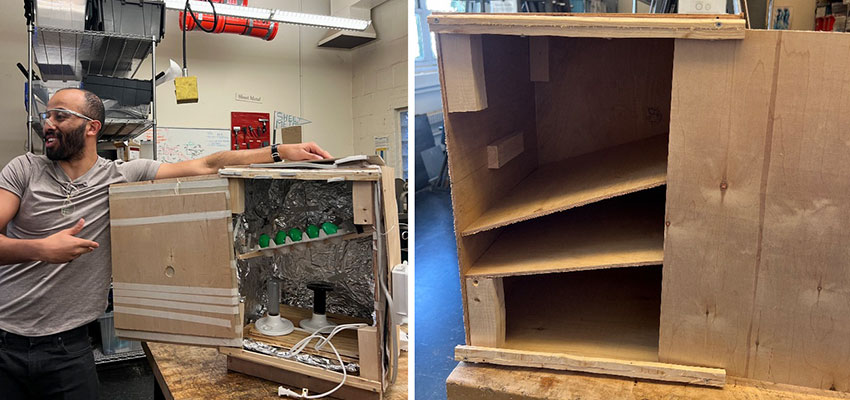
Hand-off to partner, next steps
Our next steps include testing the incubator in Cameroon using solar panels provided by our partner Lionel. Additionally, testing humidity control and evaluating hatching efficiency will validate the system's overall performance.
Contact
Ahmad Zakka, Instructor
Khadija Ghanizada, Teaching Assistant
Odai Elyas, student team member
Aletha Pyeatt, student team member


